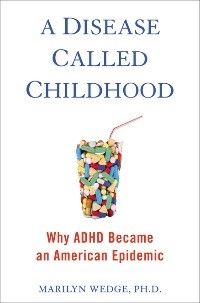Trauma
Why Schools Should Be More Nurturing
Stressful experiences change children's brains
Posted December 1, 2013
We usually think of the job of schools as education. However, recent research on children with learning and behavior problems suggests that in order to provide excellent learning environments for all children, our schools need to be much more than that.
What researchers found is that many kids whose misbehavior interferes with their learning are suffering from the effects of traumatic experiences or experiences that are highly stressful. What’s more, traumatic stress can change a child’s brain in ways that prevent him from focusing and paying attention in the classroom.
Incidents of traumatic stress on children are called “adverse childhood experiences", often abbreviated as ACEs. Some examples of these kinds of experiences are divorce of parents, abuse or neglect, witnessing domestic violence, substance abuse in a family member, and death or illness of a parent. These experiences are far more prevalent than previously thought. In one study of 17,000 children, two-thirds of the study participants reported at least one ACE, and more than one in five reported three or more ACE's. From my own clinical experience, I would add frequent arguments between parents as an adverse childhood experience that can cause traumatic and toxic stress.
A study conducted by researchers at the University of Wisconsin, recently reported in Proceedings of the National Academy of Sciences, found that childhood experiences of death, divorce, sexual abuse or illness could change the circuitry of a child's brain and lead to depression and anxiety. Now learning and attentiveness have been found to be impacted by these kinds of experiences as well.
A research study at Washington State University showed that ACE level was a powerful predictor for school attendance, behavior problems, and academic problems. As the number of ACEs to which a child is exposed increases, school problems increase progressively for the child because the incidents have stressed the child’s brain.

The Washington State study concludes that schools need to be more sensitive to how childhood trauma affects school performance. Children who have been traumatized need to be protected and supported by adults. Researchers recommend that all school personnel be trained to become more sensitive to recognizing how trauma affects children, and that schools create interventions to mitigate the effects of the traumatic experiences.
This includes not only training teachers, school counselors and school nurses,to be more sensitive to the effects of trauma in children, but also training cafeteria workers, playground monitors, office staff, and even school bus drivers. Adults who work with children need to learn to ask not "what's wrong with this child?" but rather "what happened to this child?"
Engagement and training of school staff are critical for helping traumatized children have a better learning environment and succeed academically. According to Susan Cole, a former special education teacher who directs the Trauma and Learning Policy Initiative. “You can have a great trauma-sensitive classroom, but if the child goes into the hall or cafeteria and gets yelled at, he can get retriggered. It’s about creating a common context that keeps kids feeling safe.”
One typical intervention is to give children a “safe space” at school to calm down. A school principal in Brockton, Massachusetts has created a unique intervention: “One of my students has three pictures on his desk: a mail box, a snack and a bean bag chair. If this boy is not feeling in his body that he can be in class, he knows he can pick up one of the pictures and go get my mail in the office, get a crunchy snack, or take a break in the bean bag chair.” The principal has found that bean bag chairs and bubbles seem to be particularly helpful to young kids.
The new research on how trauma affects children’s social interactions, behavior, attendance, and academic performance suggests that schools need to evolve in order to meet the needs of these kids. Instead of blaming or labeling traumatized children, schools need to create interventions to help them.
State legislatures are beginning to be cognizant of this issue. The Massachusetts state legislature, for example, is considering a bill that would require all schools in the state to create safe and supportive environments for children, drawing on trauma research. As more research emerges on how trauma affects children’s brains and impacts their learning and behavior, it seems likely that other states will follow the example of Massachusetts.
Copyright © Marilyn Wedge, Ph.D.
Connect on Facebook

Read more about schools in Marilyn Wedge's new book, A Disease Called childhood: Why ADHD became an american Epidemic.




